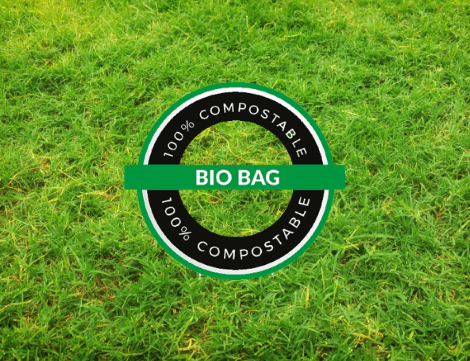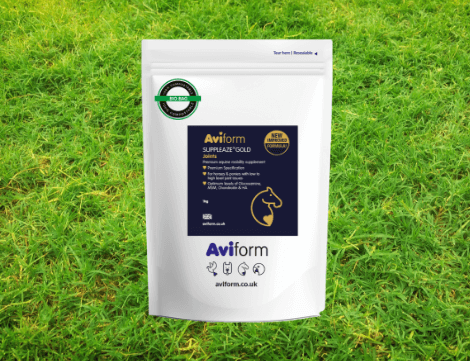Aviform’s 100% Compostable Bio-Pouch
100% Compostable Plastic Free Packaging
Not to be confused with ‘biodegradable’ packaging which can take months or even years to degrade, Aviform’s new 100% compostable bio-pouches comply with EU harmonised standard EN 13432:2000 for compostability and the requirements of Vinçotte OK Compost certification for home composting.
It’s not just the environment that benefits from our compostable pouches…
As the compostable pouches are cheaper for us, we are able pass these savings onto you meaning you can save up to 20% if you opt to buy your supplement in our compostable pouch. As a bonus, our pouches will fit through your letter box so there’s no need for you to wait around to receive your order.
Better than biodegradable
Compostable, as opposed to biodegradable, is a human led process that has many beneficial uses including fertilising and improving soil health. In order for a material to be compostable it must break down to carbon dioxide, water, inorganic compounds, and biomass and disintegrate into small pieces within 90 days, so that the original product is not visually distinguishable in the compost and leave leave no toxic residue. Packaging must comply with the EU harmonised standard EN 13432:2000 for compostability to be truly compostable. Anything else just isn’t.
A biodegradable material is not necessarily compostable, where as a compostable material is always biodegradable.
Aviform’s new 100% bio-pouches are made from a Kraft paper (FSC certified) three-layer laminate using natural adhesives.
The resealable press-to-close zipper is also made from vegetable starch.
We use paper labels with a water based ink.
Please note that as a further step to reduce plastics, we have replaced the plastic scoop in our bio-pouches for 100% compostable measuring cups, or feel free to use your existing scoop if you have purchased from us before.


Biodegradable vs compostable
The terms ‘biodegradable’ and ‘compostable’ are often used in conjunction with each other, when in fact they are two very different things and should not be used interchangeably. But what is the difference?
Biodegradable means that a product can break down without oxygen and turn into water, carbon dioxide and biomass within a reasonable amount of time. However, any product—be it a plastic electronic or toxic battery—will eventually break down, meaning the word ‘biodegradable’ means very little as everything is degradable over time.
As society is becoming increasingly aware of the impact of waste on the environment, more of us are seeking products that will decompose quickly and completely after they are discarded. Manufacturers who recognise this concern will often label their materials as “compostable” or “biodegradable.” As there is no reference to the amount of time needed for a material to biodegrade or the type of physical and chemical quality attributes of the end product, so it is easy for consumers to be easily confused and for companies to be vague in their transparency. All that is assumed is that a biodegradable material will take way less than 1000 years, which is how long it takes some plastics.
Consumers need to be vigilant to deceptive practices which may occur in such labelling. The label “compostable” is regulated by industry standards that are measurable, verifiable, and certifiable. On the other hand, the label “biodegradable” is essentially worthless, unless it is accompanied by an explanation of the conditions that allow the product to “biodegrade.”


